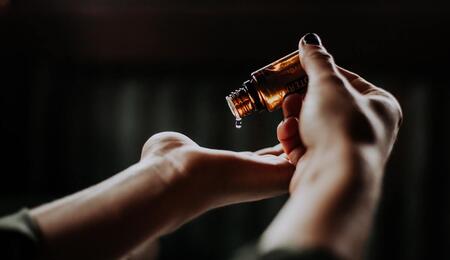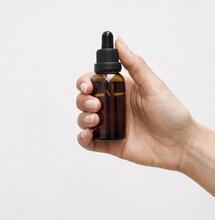Cannabis Medicines for Skin Diseases: Study

A recent study shows interest in medical cannabis products among patients with skin diseases has increased with the advance of legalization. People tend to treat various dermatologic conditions, including acne, rosacea and psoriasis with medical cannabis. 1 in 5 patients claim they purchase medical cannabis products without a dermatologist's recommendation.
A recent study published in the Journal of Drugs in Dermatology sums up the results of 504 survey correspondents who answered questions on their use and benefits of medical cannabis for dermatological conditions.
Researchers at The George Washington University School of Medicine and Health Sciences, Washington D.C., and The University of Maryland carried out the survey hoping to fill in a gap as "literature on consumer behaviors and attitudes with regards to dermatological use [of cannabis] is limited."
Out of 700 survey invitations sent, the researchers collected answers from 504 individuals, of whom more than half or 54% were male and nearly one-third or 31% were within the 35-44 age group.
Survey respondents were quizzed on their use of dermatologist-recommended medical cannabis products, which may or may not require a Department of Health medical card for the purchase.
Nearly 90% of correspondents said they supported the use of medical cannabis, however, as little as 7% had a medical cannabis card. More than half of the participants, or 55% to be exact, said they approved using medical cannabis products to treat skin conditions, and nearly 75% said they were comfortable seeing a dermatologist who can recommend these products.
The survey also revealed that inflammatory skin diseases were the most common conditions people try to treat with medical cannabis, such as acne (28.4%) and psoriasis (26.1%).
Only 1 in 5 correspondents did not consult a dermatologist before purchasing their medicine, the study found.
Among those who had seen a dermatologist, 15.3% used a medical cannabis product, most for psoriasis (32%) and rosacea (30%). Slightly less than 8% of patients were recommended a product requiring a Department of Health-approved card, with acne (68%) and psoriasis (28%) being the most common indications for these medicines.
According to Adam Friedman, MD, affiliated with the George Washington University School of Medicine and Health Sciences and who participated in the survey, there is an increased interest among the public to identify products marketed as "natural," which he correlates with the increased utilization of cannabis products for health reasons.
In an interview with Dermatology Times, he says, "there are a lot of marketing terms that are strictly absurd and that really don't relate to skincare."
Friedman believes that the 2018 Farm Bill also contributed to the increased interest in medical cannabis.
"Up until the Farm Bill, every component of the cannabis plant, regardless of whether it was psychoactive or not, was considered illegal," he said. "There is this mystification and excitement around something that is kind of taboo, which I think always drives sales and people capitalize on that."
He added: "I think some of the very exciting preclinical data, mixed with the controversies and the hype around cannabis, leads to excited consumers to try something new that could be 'natural' and could also potentially have a biological impact."
Not All Dermatologists Literate on Cannabinoids
While the recent study mentions in its conclusion that "consumers are interested in and are using medical cannabis products for dermatological indications, most commonly for inflammatory skin conditions," they also write that "targeted education for dermatologists is recommended."
In his interview with Dermatology Times, Friedman further explains that dermatologists, among other clinicians, need to be ready to answer questions related to the various types of cannabinoids and their effects on disease. Unfortunately, that may not always be the case.
Another study in the Journal of Drugs in Dermatology, published in 2018, reveals that dermatologists might lack critical knowledge to answer patient inquiries on cannabis.
Perhaps the most surprising notion of this survey is that at the time it was conducted, more than half of its respondents (64%) said they did not know CBD is non-psychoactive, and almost a third (29%) were unaware that THC is psychoactive.
The study also shed light on how nearly half of the dermatologists were hesitant to propose cannabinoid therapies due to stigma. The majority of respondents (86%) were willing to prescribe an FDA-approved cannabinoid as a topical treatment, and fewer (71%) were willing to prescribe an oral form of cannabis medication.







